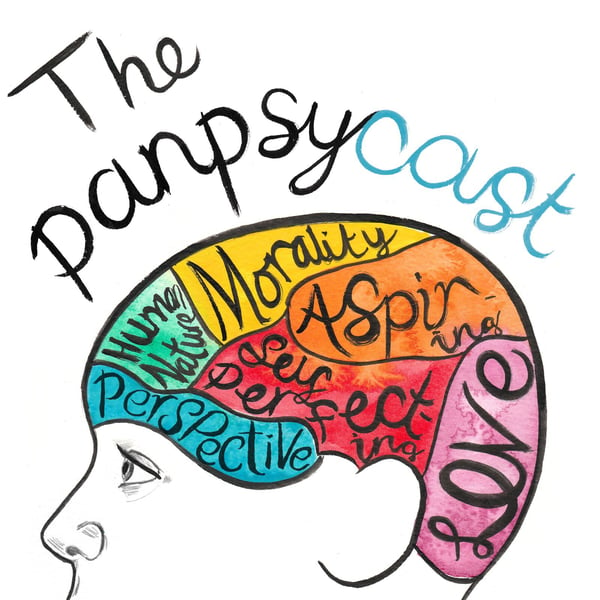Episode 80, ‘Human Nature’ with Steven Pinker and Rutger Bregman (Part II - Further Analysis and Discussion)
The Panpsycast Philosophy Podcast
Jack Symes | Andrew Horton, Oliver Marley, and Rose de Castellane
4.8 • 604 Ratings
🗓️ 13 June 2020
⏱️ 45 minutes
🧾️ Download transcript
Summary
What was life like before we emerged from hunter-gatherer tribes and pulled ourselves into the civilised world? Notoriously, this same question was asked by the great philosopher Thomas Hobbes in the seventeenth century. His answer? The state of nature is a ‘time of war, where every man is enemy to every man’; where all live in ‘continual fear’, and in ‘danger of violent death; and the life of man, solitary, poor, nasty, brutish, and short.’ This is human nature. Left to our own devices, we are led to fight by diffidence, competition, and glory. Here our inner demons come out to play: predatory, revengeful, dominant, and sadistic. We are survival machines, but ultimately, the best way for us all to survive is to create a new machine, a great Leviathan - viz, the dawn of the state.
Thirty years after Hobbes’ death saw the birth of his rival, Jean-Jacques Rousseau. It is here, at the origin of the state, says Rousseau, where human nature is corrupted: society is the curse of humankind. In his own words, ‘many writers have hastily concluded that man is naturally cruel, and requires civil institutions to make him more mild; whereas nothing is more gentle than man in his primitive state… according to the axiom of the wise Locke: There can be no injury, where there is no property.’ Be sure not to listen to Hobbes the imposter. We are lost, but we can find ourselves again.
In this episode, we’ll be discussing the views of Hobbes and Rousseau with returning guests Steven Pinker and Rutger Bregman. Steven Pinker, Professor of Psychology at Harvard University, is one of the leading thinkers in the field. Steven has an extraordinary list of accomplishments and awards, considered by many, including Foreign Policy and Time magazine, to be amongst the 100 Most Influential People in the World Today. Historian and author, Rutger Bregman, is acclaimed for his bestselling book, Utopia for Realists: and how we can get there. Described by The Guardian as ‘the Dutch wunderkind of new ideas’ and by TED as ‘one of Europe's most prominent young thinkers’, Bregman’s vision of (and for) humankind is a call to rethink our understanding of the past, and our vision for the future.
Coinciding with the rise of the homo sapien, this might be the oldest and most important philosophical question: what is human nature?
Transcript
Click on a timestamp to play from that location
| 0:00.0 | Pan Pan |
| 0:02.0 | Psychist |
| 0:04.0 | The TopiF |
| 0:06.0 | You're |
| 0:10.0 | The Topi for real this was I thought beautifully written. |
| 0:19.0 | Thank you. Thank you. |
| 0:21.1 | Crystal clear, engaging. |
| 0:23.0 | Yeah. |
| 0:24.1 | No, but it was so nice for you. |
| 0:26.0 | I really remember that moment because back then, you know, it was a self-published book. |
| 0:32.6 | It was just on Amazon Create Space. |
| 0:35.4 | And we had sold like, I don't know, a couple of dozens of copies. |
| 0:39.6 | And it wasn't really successful whatsoever. |
| 0:42.2 | And then obviously I was my own PR employee at the time. |
| 0:45.8 | So it was just basically spamming people. |
| 0:48.2 | Well, I know how it is right now to get a lot of emails. |
| 0:51.8 | And you must get a lot of emails as well. |
| 0:53.6 | So I don't know. I really appreciated that. That you just looked at the ideas and took the time and read it. Yeah, that was really nice. Okay, I'm glad it was helpful. And of course, one of your four ideas became part of the platform of one of our presidential candidates. Yeah, yeah. Andrew Yang, yeah. Editor, |
| 1:11.4 | please make sure that Rutgers |
| 1:11.9 | slandering the Dutch |
| 1:12.9 | and millennials |
| 1:14.2 | isn't included |
... |
Please login to see the full transcript.
Disclaimer: The podcast and artwork embedded on this page are from Jack Symes | Andrew Horton, Oliver Marley, and Rose de Castellane, and are the property of its owner and not affiliated with or endorsed by Tapesearch.
Generated transcripts are the property of Jack Symes | Andrew Horton, Oliver Marley, and Rose de Castellane and are distributed freely under the Fair Use doctrine. Transcripts generated by Tapesearch are not guaranteed to be accurate.
Copyright © Tapesearch 2025.

